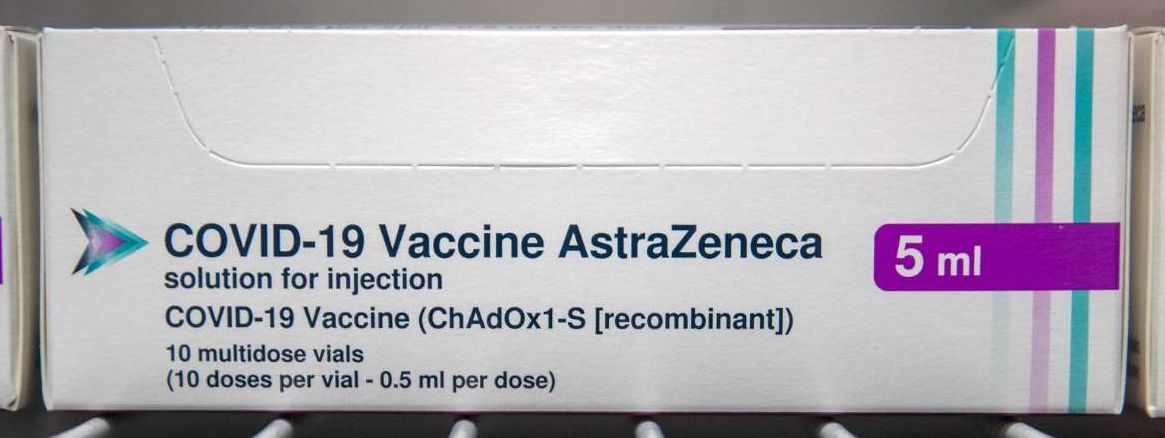
Denmark has decided to completely stop the Oxford-AstraZeneca Covid vaccine rollout amid concerns about rare cases of blood clots, the first European country to do so fully.
The move is expected to delay Denmark’s vaccination program by several weeks.
Drug watchdog the European Medicines Agency (EMA) last week announced a possible link with clots but said the risk of dying of Covid-19 was much greater.
Several European countries had previously briefly suspended the AstraZeneca vaccine.
Most have now resumed vaccinations with AstraZeneca, but often with limits to older age groups.
On April 13, the US, Canada and the EU paused the Johnson & Johnson vaccine for similar reasons over clotting.
South Africa has also paused its use, despite the Johnson & Johnson being its preferred vaccine because of its effectiveness against the South African variant.
For both AstraZeneca and Johnson & Johnson, the blood clot side effects are extremely rare.
The EU’s vaccine rollout has been criticized by the WHO for being too slow, and there are concerns this latest delay could throw it into further turmoil.
Both vaccines work by a similar method, known as adenoviral vectors.
Danish officials said that all 2.4 million doses of the AstraZeneca vaccine would be withdrawn until further notice.
The Danish Health Authority said studies had shown a higher than expected frequency of blood clots following doses, affecting about one in 40,000 people.
It comes after two cases of thrombosis in Denmark were linked to vaccinations, AFP reported. One of the cases, in a 60-year-old woman, was fatal.
Director General Soren Brostrom said it had been a “difficult decision” but Denmark had other vaccines available and the epidemic there was currently under control.
However, the authority said it could not rule out using it again at another time.
During the press conference the head of Denmark’s Medicines Agency, Tanja Erichsen, fainted and was taken to hospital as a precaution. The agency later tweeted that she had recovered.
Germany Suspends AstraZeneca Vaccine Use Under-60s
Sputnik V Becomes Third Covid Vaccine Approved in India
Almost one million people in Denmark have been vaccinated, with approximately 150,000 of them receiving the AstraZeneca vaccine. The Pfizer/BioNTech and Moderna vaccines are also in use.
Adenoviruses are found in humans and other animals. Scientists use a modified version of one of these adenoviruses, known as a vector, to deliver important instructions to cells, according to the CDC.
They work by entering cells and using the cell’s machinery to produce a harmless piece of the virus that causes Covid-19, known as a spike protein. The cell then recognizes that the spike protein does not belong there and this triggers the immune system to fight back against what it thinks is an infection.
This process allows our bodies to learn how to protect us against Covid-19, according to the CDC.
Regulators are now investigating whether an unusual immune response to the adenovirus vaccines is causing the rare but severe incidences of blood clotting.
An official from the FDA told Reuters it was “plainly obvious” that the cases of blood clots linked to the Johnson & Johnson vaccine were “very similar” to those linked to the AstraZeneca vaccine.
The US paused rollout of the Johnson & Johnson vaccine after six women under 50 developed rare blood clots after getting the shot. In the UK 30 people had developed unusual blood clots and seven of them had died after getting the Oxford-AstraZeneca vaccine, out of a total of 18 million vaccinated.
Some European countries have limited the use of adenovirus vaccines to older people, who have been less affected by the rare blood clotting condition.
After the Danish announcement, France said it viewed the AstraZeneca vaccine as an “essential tool”.
France will also go ahead with plans to give the Johnson & Johnson vaccine to those aged over 55, the spokesman said. The country has already received 200,000 doses. Belgium will also give the doses it has received, while Greece and Italy will not.
Meanwhile the Czech Deputy PM Jan Hamacek said he had instructed the Czech ambassador in Denmark to try to buy the 2.4 million AstraZeneca vaccines doses that the Danes would no longer be using.
Jan Hamacek said he would also travel to Moscow to arrange deliveries of the Russian Sputnik V vaccine – another adenovirus vaccine – once its use is approved by the EMA.
Denmark was the first country to postpone use of the AstraZeneca vaccine in March. It was followed by numerous other European countries.
In a separate development, the European Commission said Pfizer-BioNTech would deliver an extra 50 million doses to the EU in the next few weeks.
